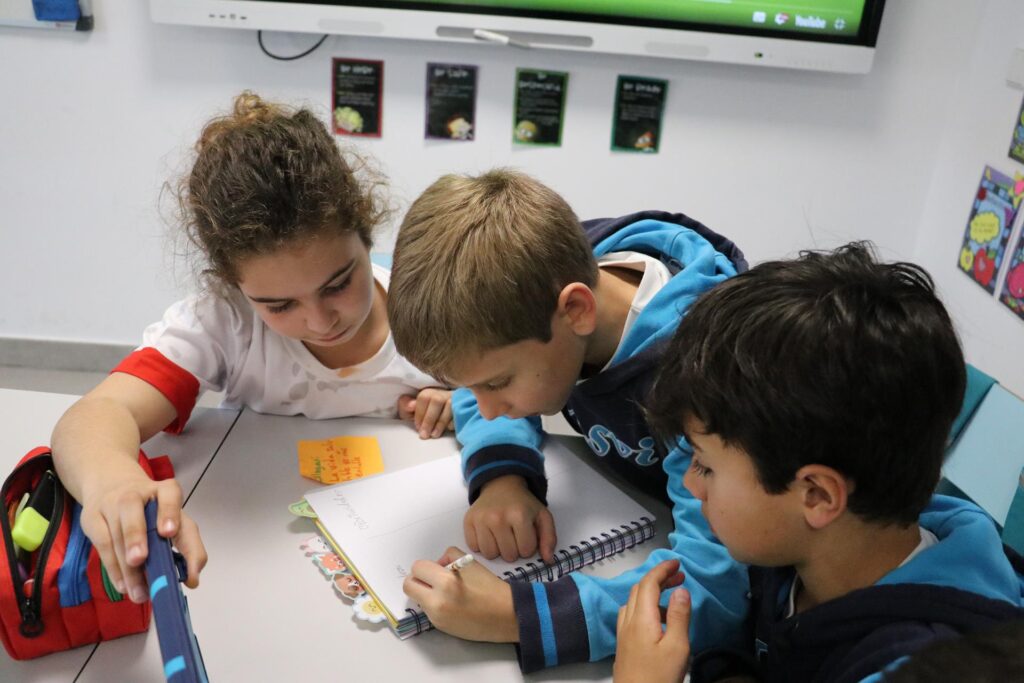According to experts, during childhood, the development and education of healthy habits should be prioritized over knowledge. For children to acquire these habits, it is essential to establish routines, both at home and at school. In this way, repeating certain actions, activities, or rituals daily will promote the overall development of young children. This also provides them with a sense of security.
According to the Spanish Repository of Science and Technology (RECYT), childhood is the best time to instill these types of habits, as children ‘learn and imitate’ the behaviors of the adults around them. This is a double-edged sword, as there must be consistency between what we say and what we actually do.
Furthermore, the organization argues that it is important for parents to encourage children to eat a varied diet, try new foods, and follow a regular eating schedule whenever possible. However, it emphasizes the importance of ‘sharing one meal a day with them to exchange the experiences of the day.’
However, many experts point out that a child’s eating habits are ‘conditioned’ by their environment. That is, by family, educators, school cafeterias, or the media.
Within the education of healthy habits, there is also awareness about the importance of hygiene, practicing sports, and getting the recommended 9 hours of sleep during the pre-adolescent and adolescent stages. Fatigue and lack of sleep notably affect academic performance and household accidents.
This organization also maintains that ‘a healthy lifestyle promotes a good quality of life,’ thereby helping children grow in a healthy and stable way.
For its part, UNICEF points out that education in healthy habits contributes, among other things, to ‘preventing the emergence of disorders and diseases related to food and nutrition.’ Additionally, it encourages adopting behavioral guidelines that promote ‘the protection and responsible care of their overall health.

Education in healthy habits, a driver of academic excellence

However, nutrition not only affects the physical health of students, but it can also determine their academic performance, as it is a key element in cognitive and emotional development. Eating a balanced diet significantly influences their ability to concentrate, remember, learn, perform, and maintain a better mood. Therefore, including lean proteins, healthy fats, fruits, and vegetables in their diet can make a big difference in their academic success.
There are many foods that are globally known for their beneficial properties for memory and concentration. Among them are nuts, such as walnuts, and chia seeds, due to their richness in healthy fats.
On the other hand, there are Omega-3 fatty acids found in salmon, tuna, or sardines, which are essential for brain development and proper cognitive function, as well as blueberries, whose high antioxidant content improves short-term memory.
Complex carbohydrates found in whole grains, legumes, or vegetables provide a steady source of energy. Unlike simple carbohydrates (found in sweets or sugary drinks), complex carbohydrates prevent sharp spikes and drops in blood glucose, thereby boosting concentration for hours.
Likewise, diets rich in vitamins, minerals, and healthy fats stabilize serotonin levels. That is, a neurotransmitter that regulates mood
This translates into a more positive attitude and a greater willingness to learn. On the other hand, a nutrient-poor diet can contribute to fatigue, stress, and irritability, factors that directly affect academic performance.
Learn more about our teaching methodology
At Casvi International American School we promote education in healthy habits in different areas, as we strive to achieve the highest excellence, not only academically, but also personally, of our students.
In this regard, the school encourages and promotes the participation of our students in various sports activities, both during class hours and as extracurriculars. On the other hand, the cafeteria menu follows the Mediterranean diet, which is rich in whole grains, healthy fats like olive oil, omega-3 fatty acids, and lean proteins. These foods enhance academic performance.
If you want to learn more about our school and our teaching methodology in Pre-School and Kindergarden, visit our website or contact with our Admissions Department.

